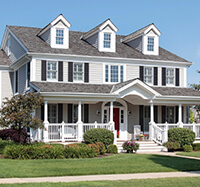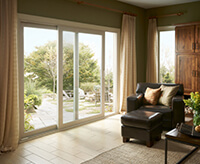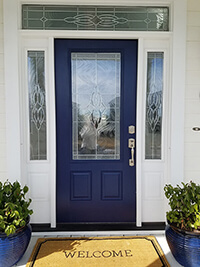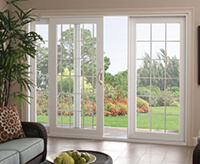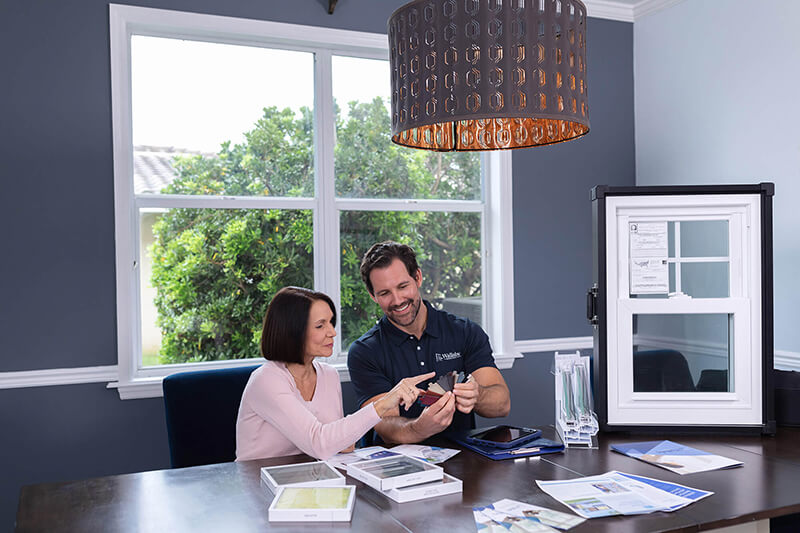
How To Soundproof Windows | Wallaby Windows Southwest Denver
Noise pollution, often overlooked as a mere annoyance, has far-reaching effects on mental health and cognitive function. The constant hum of traffic, the roar of airplanes overhead, and even the incessant buzz of urban activity are not just background noise — they are active contributors to neurological strain and degradation. Research has increasingly shown that prolonged exposure to such environmental noise can pave the way for the development of serious neurological disorders, including stroke, dementia, depression, and anxiety.
Below, we'll explore the covert effects of noise pollution on the brain, why it's necessary to soundproof windows, and various techniques for soundproofing windows.
Higher Risk In Urban Environments
Urban environments, with their dense populations and constant traffic, create a cacophony of sounds that can be challenging to escape. This unyielding exposure to noise pollution has been linked to increased levels of stress hormones, impaired cognitive development in children, and a general decline in well-being among adults. Moreover, the insidious nature of noise pollution means that many are unaware of its impact until symptoms of related health issues begin to manifest.
The risk is particularly high for individuals residing near bustling intersections, expansive parking lots, railway tracks, train stations, and areas frequented by heavy volumes of motorized vehicles. The relentless noise emanating from these sources penetrates daily life, disrupting sleep patterns, concentration, and even emotional stability. This exposure does not affect everyone equally; city dwellers bear the brunt of this auditory assault far more than their counterparts in quieter, more serene countryside or suburban settings.
Soundproofing Windows Can Help With Noise Pollution
Combatting noise pollution requires a multifaceted approach, and soundproofing windows represents a practical and effective measure for mitigating these adverse effects. By creating a barrier between the external noise and the interior of homes and workplaces, soundproofing helps to maintain a quieter, more controlled environment. This not only enhances the quality of life but also protects the brain from the constant stressors introduced by noise pollution. Investing in soundproofing solutions can be seen as an investment in one’s health and well-being, providing a sanctuary of peace in an otherwise noisy world.
The covert impact of noise pollution on the brain is profound and far-reaching, with significant implications for mental health and quality of life. By acknowledging the dangers posed by environmental noise and taking proactive steps to mitigate its effects, individuals can protect themselves and their families from its harmful consequences. Soundproofing windows stands out as a simple yet effective strategy to reclaim the tranquility of personal spaces, underscoring the importance of creating a serene environment conducive to mental and emotional well-being.
Why Should You Soundproof Your Windows?
Soundproofing windows significantly enhances the comfort and quality of life in indoor spaces by offering a multitude of benefits. The primary advantage is the substantial reduction of exterior noise sources, such as traffic, construction, airport noise, and neighborhood activities, thereby creating a quieter and more peaceful environment inside. This noise reduction is especially beneficial at night, improving sleep quality and comfort for those whose bedrooms face busy streets or noisy areas. Beyond just blocking unwanted sounds, soundproofing also enhances privacy by preventing conversations and other indoor sounds from being heard outside, ensuring better acoustic privacy within homes and offices.
Additionally, properties equipped with soundproof windows often see an increase in value, particularly in noisy urban areas, as they become more appealing to potential buyers and renters. Energy efficiency is another significant benefit, as methods like double or triple glazing not only reduce noise but also improve thermal insulation, leading to lower heating and cooling costs.
A quieter environment can also boost concentration and productivity, making it easier to work, study, or engage in hobbies that require focus. Moreover, constant exposure to loud noises can elevate stress levels and contribute to health issues, but soundproofing windows can mitigate these effects, providing a serene environment. Overall, soundproofing windows transform indoor spaces into comfortable and enjoyable oases of calm, shielding them from the pervasive noise of the external world.
The Two Best Methods for Soundproofing Windows
Amidst various techniques to sound proof glass, there are two methods that stand out for their efficiency and effectiveness: laminated glass and triple-paned glass. These solutions offer a formidable defense against noise pollution, enhancing the tranquility and comfort of indoor spaces.
Laminated Glass
Laminated glass, engineered by bonding layers of glass with a plastic interlayer (usually polyvinyl butyral, PVB), serves as an effective sound barrier. Its customizable thickness and layer count allow it to dampen a range of sound frequencies, offering a versatile solution to noise pollution. Beyond soundproofing, it enhances safety and security with its shatter-resistant nature and offers UV protection, preventing fabric and furniture fade. It's particularly beneficial in urban settings, mitigating the relentless noise from traffic and city life.
Triple-Paned Glass
Triple-paned glass features three glass layers separated by air or gas, advancing noise reduction and thermal efficiency. This configuration blocks sound more effectively and optimizes energy use by maintaining indoor temperatures, thanks to the insulating properties of gases like argon or krypton. Ideal for any climate, it reduces energy costs and increases comfort, making it a prime choice for soundproofing and energy conservation.
Other Ways To Soundproof Your Windows
Soundproofing a window can significantly reduce the intrusion of outside noise into a room. Here are several methods for achieving better sound insulation for windows:
- Replacement Windows: If your windows are old and inefficient, consider replacing them with modern, soundproof windows designed specifically to reduce noise. Wallaby Windows offers window replacement in Denver.
- Storm Glass Windows: A storm glass window is an additional layer of protection that is applied to the outside of existing windows. In addition to being the first line of defense against debris, these windows are better able to contain sound.
- Seal Gaps and Cracks: Use acoustic caulk to seal any gaps or cracks around the window frames. Even small openings can significantly reduce the effectiveness of soundproofing.
- Weatherstripping: Apply weatherstripping around the window sashes to improve the seal and reduce airflow, which carries sound waves.
- Acoustic Curtains: Hang heavy, dense curtains designed to absorb sound. These curtains are usually made from materials that are effective in reducing noise.
- Window Inserts: Install clear window inserts or acoustic panels that can be placed over the existing window. These create an additional barrier to sound and can be removed if not needed.
- Soundproofing Window Films: Apply soundproofing films to the window glass. Though these films can help dampen noise, they are more effective for UV protection and privacy than for significant sound reduction.
- Acoustic Foam: Install acoustic foam around the window or in the window frame. This material absorbs sound, but it may not be the most visually appealing option.
- Exterior Solutions: Planting shrubs or trees outside the window can also help absorb sound before it reaches the window, acting as a natural barrier.
- Professional Assessment: For severe noise issues, consider hiring a professional to assess your specific situation and recommend custom solutions.
Trust Wallaby Windows For Window Replacement in Denver
Noise pollution significantly impacts mental health and cognitive function, leading to disorders like stroke, dementia, depression, and anxiety, particularly in urban environments where dense populations and constant traffic create inescapable noise. Soundproofing windows can mitigate these effects, enhancing indoor tranquility, sleep quality, and overall well-being by creating a barrier against external noise pollution.
Wallaby Windows Southwest Denver provides top-tier window replacement services that epitomize the intersection of innovation and comfort. By embracing the soundproofing strategies and expert solutions offered by Wallaby Windows, you can reclaim the peace and serenity of your personal spaces. Contact us to learn more about window replacement and start the process of safeguarding your home against noise pollution.
